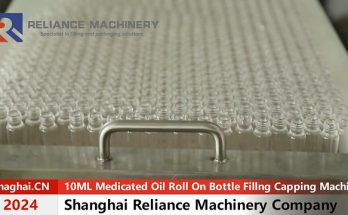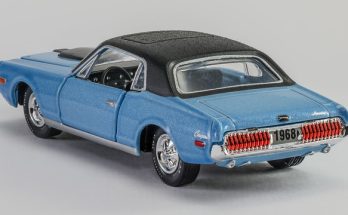Five Electric Vehicle Suppliers
As major automakers make bigger commitments to electrification, they are creating opportunities for suppliers. These include startups that specialise in battery technology and longtime auto components companies specializing in motors and inverters.
However, the EV battery supply chain is vulnerable to many risks. Currently, an outsized share of EV battery materials are refined, processed and produced in China.
LG Energy Solutions
LG Energy Solutions is a subsidiary of South Korean chemical company LG Chem, and is one of the world’s leading electric vehicle battery manufacturers. It has a market share of around 20% and supplies automakers such as Tesla, General Motors and Volkswagen. The company is also building a new factory in Holland, Michigan, to serve American EV customers.
The firm has eight battery plants in North America that can produce 300 gigawatt-hours of capacity. Of these, two are solely owned by LG and the rest are joint ventures with various automakers. The firm has a comprehensive ESG strategy that aims to minimize environmental impact, reduce the use of natural resources and ensure a safe supply chain for raw materials.
The company’s most prominent proprietary innovations are its pouch type battery cells and safety-reinforced separator. The company’s patented stack-and-fold cell technology is used to make polymer pouches, which are then laminated together into what is called a “bi-cell”. Bi-cells contain an anode, a cathode and a separator. They are then bundled together into modules, which are in turn assembled into a battery pack. Depending on the size and shape of the cells, they can come in cylindrical, prismatic or pouch-type shapes. Cylindrical batteries are more standardized in shape and are the ones you’re most likely familiar with, such as those in your Bluetooth mouse.
SK On
SK On is South Korea’s biggest battery maker and a key player in the global electric vehicle (EV) market. Its batteries power some of the world’s most popular EV models, including BMW’s 7 Series and Nissan’s Leaf. Its technology also allows EVs to drive farther on a single charge and handle more power. The company is one of the main suppliers electric pickup truck to Hyundai Motor Group, which includes Kia and Genesis. Its partnership will help the group reduce its reliance on Chinese suppliers to comply with new US climate taxes, and ensure that it can secure supplies of key minerals for batteries outside China.
Earlier this year, SK On announced plans to build a second battery plant in Commerce, Georgia, for Ford. This will increase the company’s US production capacity to 150 gigawatt hours a year. The facility is expected to open in 2023. SK On is also investing in plants in China and Hungary, and has a joint venture with Volkswagen that will produce cathodes.
SK On has a strong track record for innovation, and its success has helped it become the number two player in the global EV battery market behind China’s Contemporary Amperex Technology (CATL). The company’s lithium iron phosphate (LFP) technology has a cost advantage over nickel cobalt cells. Its plants are located close to EV assembly lines, which helps cut the cost of transporting batteries.
BYD
The Chinese automaker BYD has long been known for its battery production, but it is trying to expand into cars as well. It is currently the world’s largest electric car maker and wants to be a key player in Europe, too. BYD dethroned Tesla as the world’s top EV maker in the second quarter of this year, and its sales have been climbing ever since. But building a name in the European market will be difficult for the company, which is little-known outside China.
BYD is betting that its experience will give it a leg up in the auto industry. Its engineers can study other cars and produce parts that look like them but are different, says Wang Chuanfu, the 55-year-old cofounder of BYD. BYD’s core business is batteries, and it also makes electric motors and electronic control systems for EVs. It is a major supplier to carmakers and plans to spin off a semiconductor unit this year.
But even a company as well-established as BYD has to overcome political hurdles to enter the US, which accounts for most of the world’s car-buying markets. It has been in the US for a decade, selling buses that are assembled at a plant near Los Angeles. The company hasn’t had much luck attracting American customers, who are skeptical of Chinese-made vehicles. In addition, the country’s fractious relationship with Beijing complicates matters.
TE Connectivity
TE Connectivity is a $13 billion company that sits at the heart of electronic connections in industries including automotive, energy and industrial, consumer devices and broadband communications. It makes the components that the world relies on to work flawlessly every day. Its products enable energy efficiency, always-on communications and the seamless flow of data in electric vehicles. The company designs and manufactures a range of connectors, sensors and wiring harnesses, with the majority of revenue coming from its automotive business.
As legacy car parts makers figure out if and when to sell off their combustion engine businesses, TE and rivals in the connector and sensor space like Amphenol and Sensata are expanding to electric vehicle supplier meet demand for EV-related products. As the EV market grows, TE and other suppliers need to develop bigger components to handle higher currents and the demands of self-driving cars.
TE’s high-voltage EV solutions include charging inlets, relays and connector systems. These safely transport the high current and voltage required for EV charging. The AMP+ HV 2100 series interconnection system, for example, offers thousands of routing options and a flexible design to support EV accessories and devices. It also ensures maximum performance, reliability and safety.

